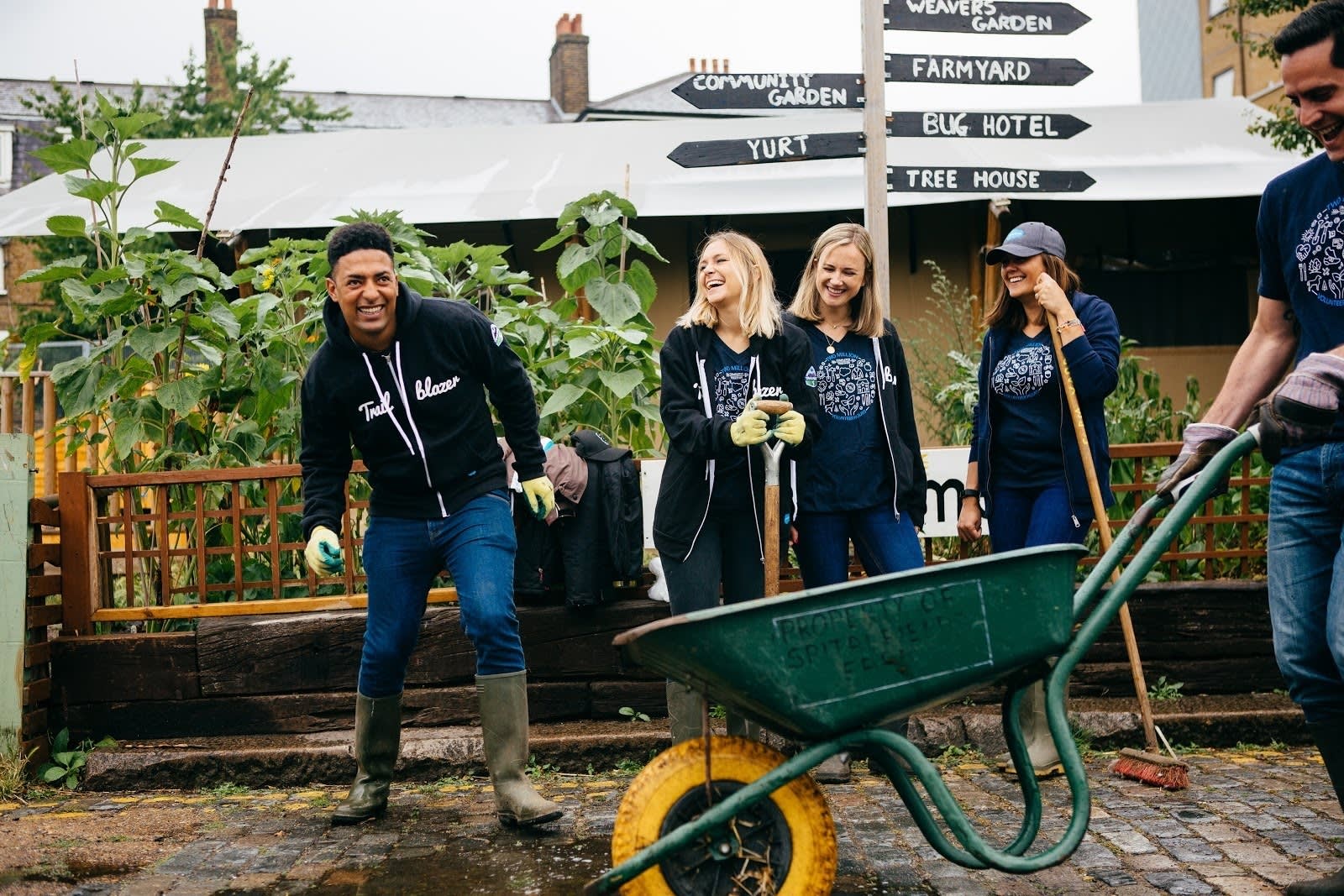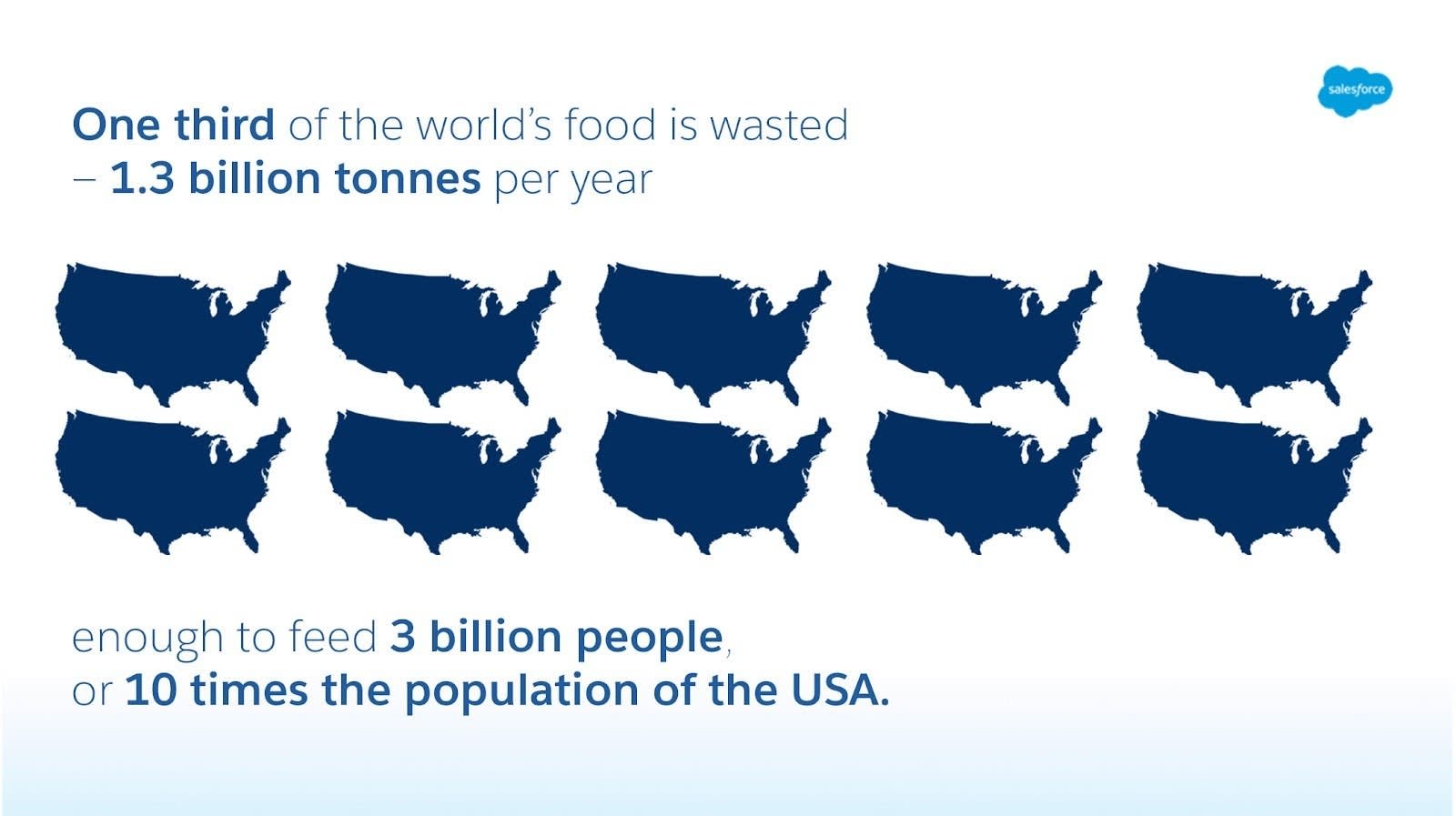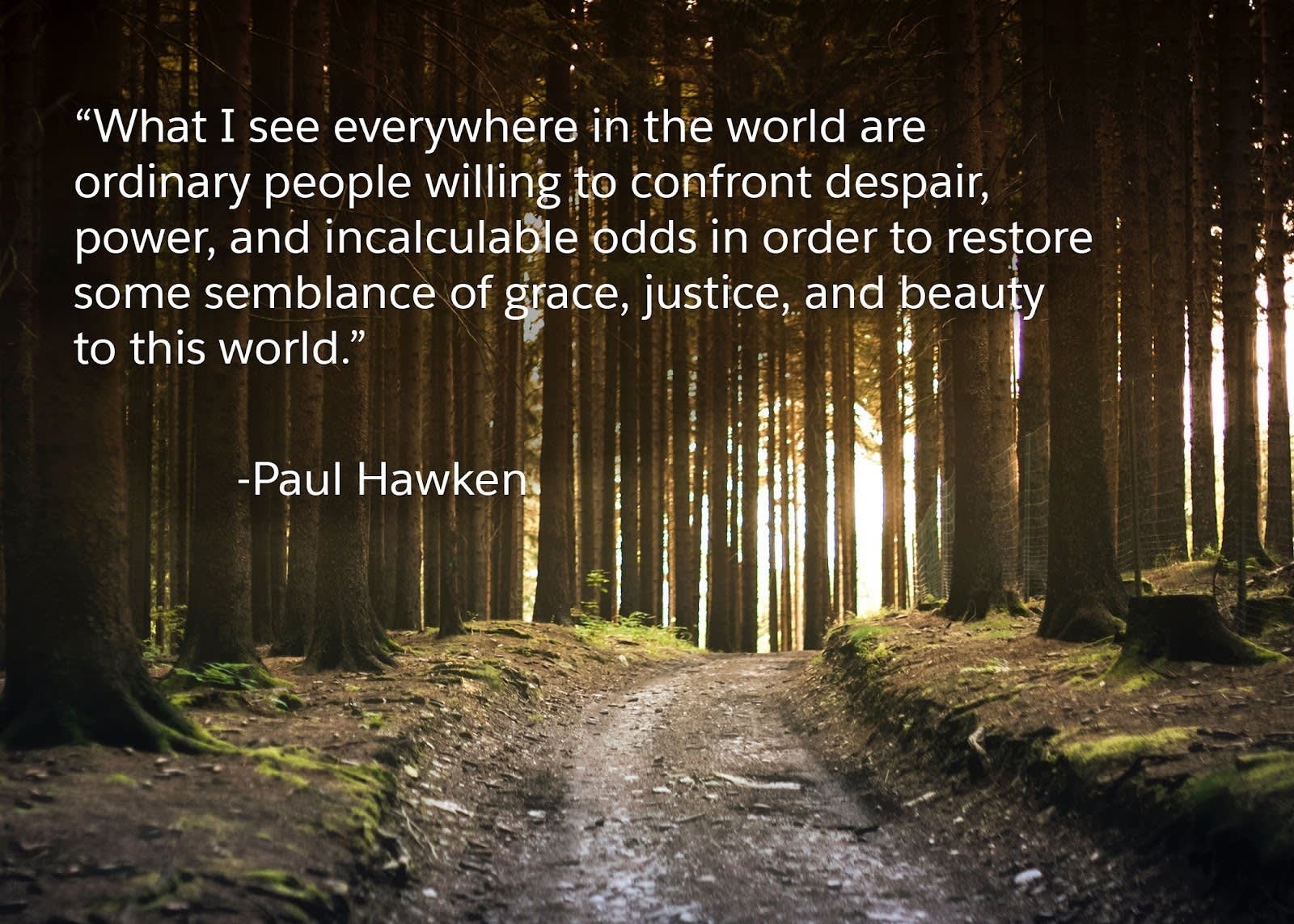Become a Climate Champion
Learning Objectives
After completing this unit, you'll be able to:
- Explain how individuals drive progress.
- List resources that can guide your sustainability journey.
How You Can Take Action Where it Matters Most
On an individual level, everything from your commute to work to what you put into the landfill to sending emails, and even watching funny cat videos, has an impact on the environment. Living and working sustainably is about choosing the alternatives that make your impact a positive one to create a sustainable future.
Your voice matters. You can help drive this critical work by spreading the word about what people are doing to make a difference. Tell your colleagues, your housemates, or your family and be part of the change. Whether it’s proposing a sustainability project to your company, making an environmental commitment, or volunteering with an environmental nonprofit, there are a million ways to join in.
Create a Green Team
At Salesforce, our green team, Earthforce, demonstrates the tangible impact of individual action. Earthforce is a group of more than 9,000 passionate employee volunteers dedicated to promoting and celebrating environmental responsibility. Earthforce members raise awareness around key issues such as energy conservation and efficiency, recycling and composting, responsible purchasing, low-carbon commuting, and much more. They also identify and support the implementation of solutions that help our company operate in a more environmentally sustainable way. With participants across 40+ offices and 90+ team leaders, Earthforce employees have volunteered nearly 135,000 hours of service for their communities and our planet.

Any organization can benefit from grassroots movements like Earthforce by creating a green team at any company. (See the steps to create a green team in the Resources section at the end of this unit.)
Earthforce members also play a critical role at our company events. At the annual Dreamforce event, our Green Angel employee volunteers (typically over 150!), help attendees recycle and compost during lunch hours.
Actions can create a ripple effect with customers, partners, employees and their networks, governments, and communities around the world. Let’s revisit the four key areas we addressed earlier: energy, food, water, and equality to illustrate how individual actions collectively make the world a better place.
Take Energy Actions
Get smart about electricity. Turn lights off when not in use. Take this one step further by switching your light bulbs to LEDs or compact fluorescents (CFLS) to use up to 90 percent less energy. In addition, talk to your utility provider to see if they provide renewable electricity. You can sometimes buy solar- or wind-powered electricity from them for a small extra fee.
Use smarter transportation. Drive or fly less. No matter what kind of car you drive, one of the best ways to reduce your greenhouse gas emissions is to drive less. Flying uses a lot of fuel. A single round-trip flight from Los Angeles to New York emits around a ton of carbon dioxide per passenger—equal to the amount an average American SUV driver emits in one month. In addition, opting for public transportation instead of driving can help embed mobility, livability, and sustainability in cities. When someone opts to ride a bus or subway rather than driving a car or hailing a cab, some greenhouse gases are averted.
Adjust heating and cooling systems. During cold months heating accounts for the majority of home energy use at a whopping 42 percent. Be mindful of your home’s heating and cooling systems with regular maintenance. In addition, insulate your living space; air leaking in and out of our homes wastes a lot of energy. Even in reasonably sealed homes, air leaks account for roughly one quarter of the wintertime heat use.
Take Food Actions
Shift your diet. The amount of meat and dairy products consumed significantly impacts the environmental footprint. According to a 2016 study, emissions could be reduced by as much as 70 percent through adopting a vegan diet and 63 percent for a vegetarian diet, which includes cheese, milk, and eggs. If you do choose to eat red meat, shop organic or grass-fed and consider limiting your consumption.
Support sustainable farms and fisheries. The environment is supported by more sustainable farming systems, including grass-fed beef that can help improve soil health and offset some of their greenhouse gas emissions by restoring carbon-rich grassland soils. When you’re eating seafood, you can use the Monterey Bay Aquarium’s Seafood Watch program to choose seafood that’s fished or farmed less impactfully. (Learn more about Seafood Watch in Resources.)
Reduce food waste. In your home, at the store, at your favorite restaurant, and in the community, there’s a huge opportunity to reduce the amount of food you waste. A third of the food raised or prepared does not make it from farm or factory to the fork. Simple changes you can make include:
- Make and serve smaller portions.
- Stick to your grocery list.
- Reuse those leftovers.
- Give your extra food to other folks.
- Be especially mindful not to waste meat and dairy.

Take Water Actions
Shift to Water-Smart Landscaping. Planting drought-friendly trees, shrubs, and other plants has plenty of benefits:
- Lower water bills.
- Reduced water use, maintenance, and plant disease.
- Deeper stabilizing roots and more groundwater recharge.
- Less polluted runoff out of local waterways.
Repair leaks. It seems like a given, but small leaks often go overlooked and lead to higher water use and a more expensive utility bill. These common headaches can result in thousands of gallons of wasted water, bill increases, and potential property damage if not addressed promptly.
Update appliances. When it’s time to replace old appliances because they can’t be fixed or you’re looking to update, look for energy and water efficient appliances with the EnergyStar® logo.
Take Equality Actions
Support programs fighting for climate justice. Explore community resources and organizations who are focused on reducing the impact of climate change on marginalized communities and elevating the voices of those communities toward solutions.
The following organizations offer additional tools and resources to empower your climate action.
-
Project Drawdown: Offers 100 climate solutions ranging from electricity generation, food, buildings and cities, land use, transport, and materials, that will inspire action and give tangible ways to make a difference.
-
Columbia University’s Earth Institute: Shares 35 easy ways you can reduce your carbon footprint.
-
The Story of Stuff Project: Supports you to find ways to act now by joining their latest campaigns, such as stopping plastic pollution. You can take the Story of Stuff “Changemaker Personality Quiz” to help give you ideas about how to act.
-
Greenpeace: Provides resource toolkits to lead you towards successful, impactful action around the world.
-
Earth Overshoot Day: The date when humanity’s annual demand on nature exceeds what Earth can regenerate over the entire year. The first Overshoot Day was two generations ago and it comes earlier each year. In 2021 it was July 29th, one of the earliest dates yet.

Continue Your Sustainability Journey
Understanding that change doesn’t come overnight and it cannot be done alone, individuals, businesses, cities, governments, and policies must work together to overcome the issues and drive a better, sustainable solution for the future.
Salesforce is committed to creating a world that is just and equitable, where everyone has equal access to clean air, water, and energy and we will continue to work towards the goals we’ve set forth. We hope that you’re inspired by our sustainability journey, and motivated to make changes in your own life.
Resources
- Blog Post: 5 Steps to Create a Green Team at Your Company
- External Site: Lighting Choices to Save You Money
- External Site: Monterey Bay Aquarium Seafood Watch
- External Site: The 35 Easiest Ways to Reduce Your Carbon Footprint
- External Site: Earth Overshoot Day